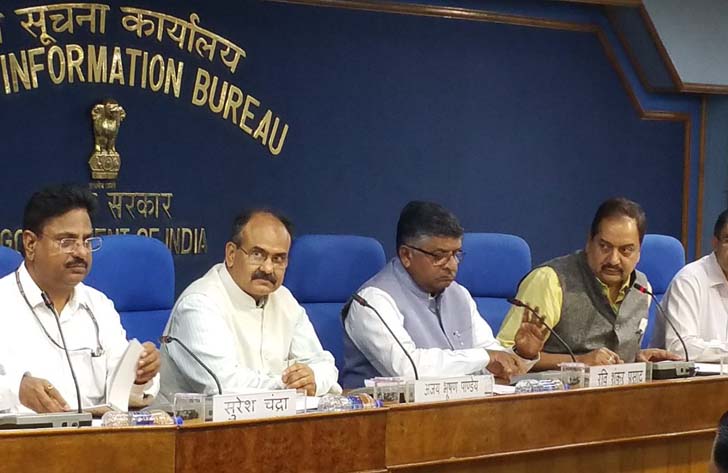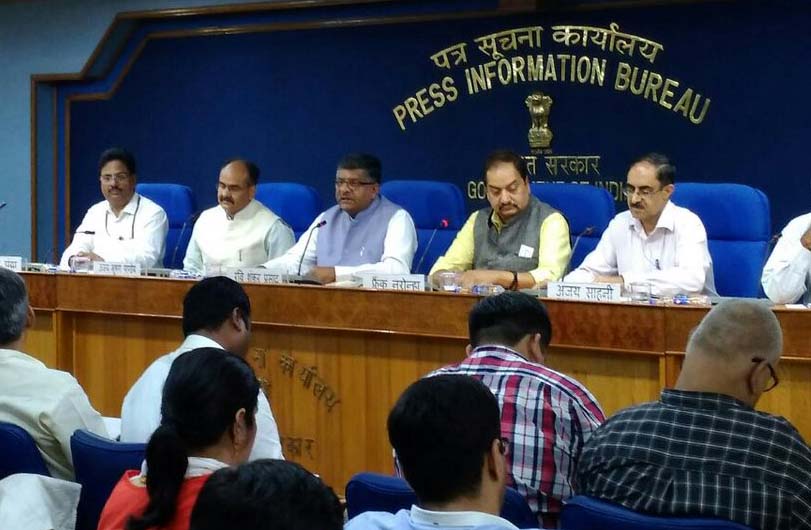 English
English

Union Law Minister Ravi Shankar Prasad said, “Aadhaar during UPA regime had no protection of law. How the government could collect data or insist upon biometrics without any legislative sanction? We made Aadhaar law and provided legal framework for protection its data.”

New Delhi: The Centre on Thursday launched a scathing attack on the previous Congress-led UPA government over Right to Privacy, stating that Aadhaar during the then government had no protection of law.
Also Read: Supreme Court rules Right To Privacy as a fundamental right
Addressing a press conference, Union Law Minister Ravi Shankar Prasad said, "Aadhaar during UPA regime had no protection of law. How the government could collect data or insist upon biometrics without any legislative sanction? We made Aadhaar law and provided legal framework for protection its data."

Averring that Right to privacy should be a fundamental right with subject to the reasonable restrictions, Prasad further questions Congress' record of protecting individual liberty.
"Since morning Congress is targeting us and Left has also joined them. What is the Congress' record of protecting individual liberty?" the Union Law Minister stated.
Prasad further said that the essence of Supreme Court judgement is a wider affirmation of the observation made by Finance Minister Arun Jaitley in Rajya Sabha.
" The whole world appreciates the technological marvel that is Aadhaar. Aadhaar system operates on the principle of Minimum Information, Maximum Use. Aadhaar has shown its utility in a very short span of time, it is completely safe and secure," he added.
Earlier in the day, the nine-judge Constitution bench of the apex court overruled the M.P. Sharma (1962) and Kharak Singh (1954) judgement and gave the verdict that privacy was a fundamental right of a citizen.
A five-judge constitutional bench is to decide whether the Aadhaar violates the Right to Privacy or not.
On July 26, the Centre had told the apex court that there is a fundamental right to privacy, which is a 'wholly qualified right,' and in special circumstances, the government can interfere in a matter that comes under a wholly qualified right. An absolute right cannot be reduced or amended. (ANI)